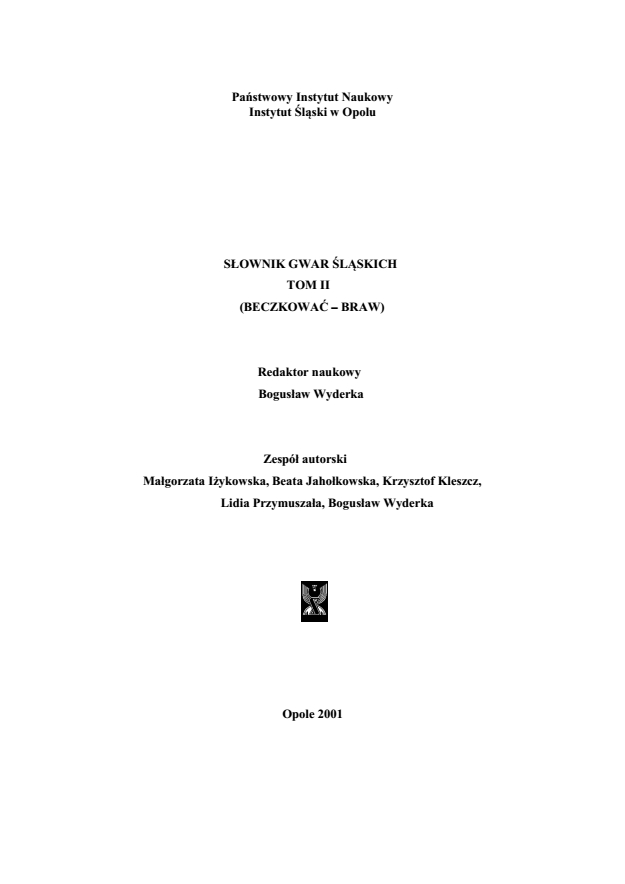
Słownik Gwar Śląskich, tom II (BECZKOWAĆ - BRAW)
"Glossary of Silesian Dialects" is the result of many years of scientific work of several generations of linguists from the Silesian Institute in Opole, Poland.
More...We kindly inform you that, as long as the subject affiliation of our 300.000+ articles is in progress, you might get unsufficient or no results on your third level or second level search. In this case, please broaden your search criteria.

"Glossary of Silesian Dialects" is the result of many years of scientific work of several generations of linguists from the Silesian Institute in Opole, Poland.
More...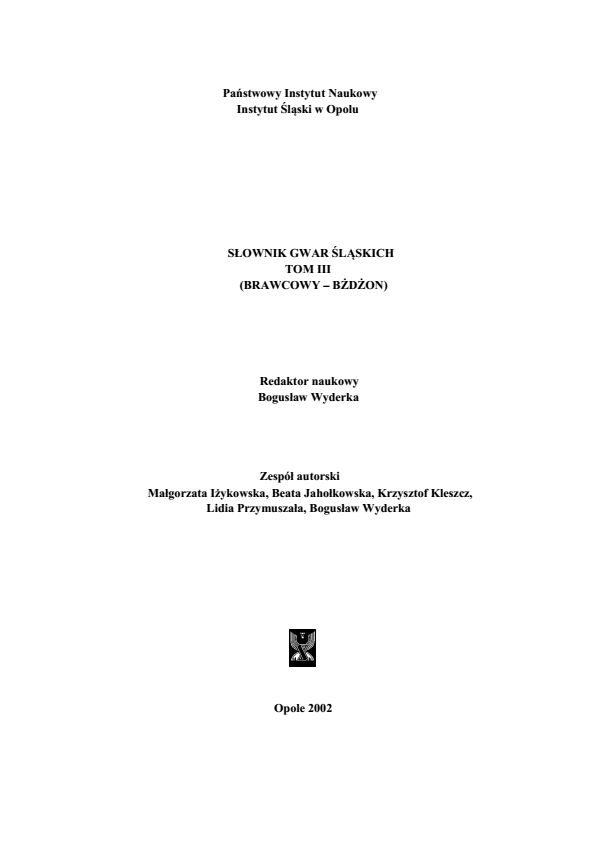
"Glossary of Silesian Dialects" is the result of many years of scientific work of several generations of linguists from the Silesian Institute in Opole, Poland.
More...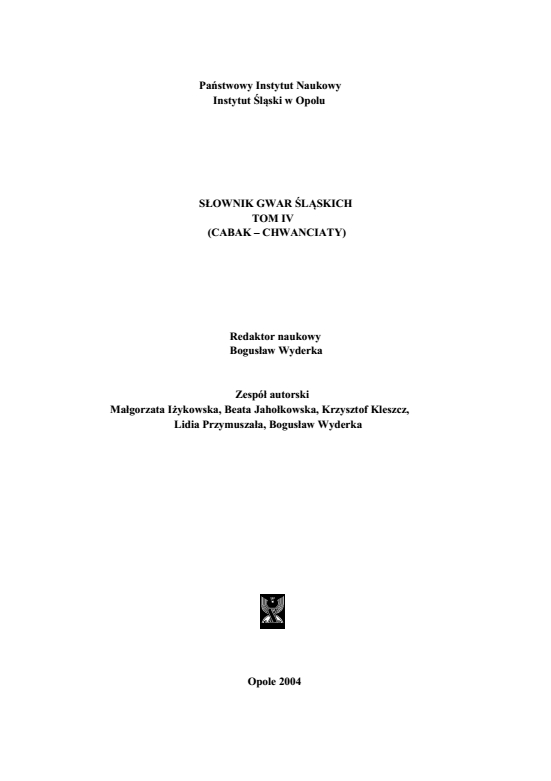
"Glossary of Silesian Dialects" is the result of many years of scientific work of several generations of linguists from the Silesian Institute in Opole, Poland.
More...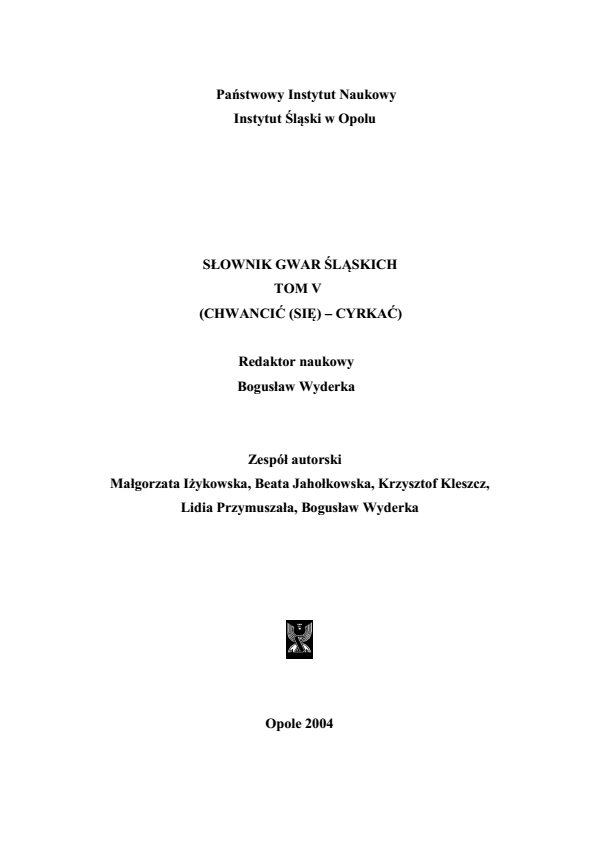
"Glossary of Silesian Dialects" is the result of many years of scientific work of several generations of linguists from the Silesian Institute in Opole, Poland.
More...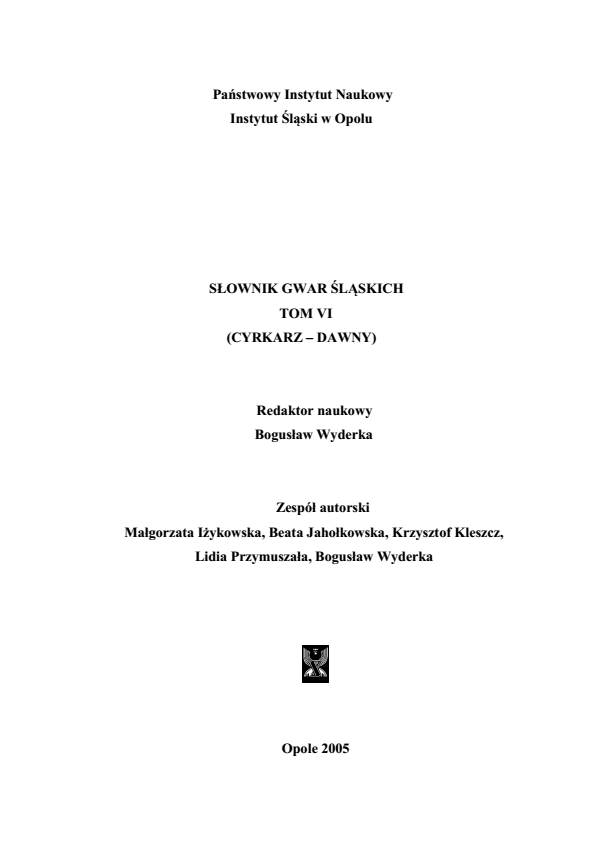
"Glossary of Silesian Dialects" is the result of many years of scientific work of several generations of linguists from the Silesian Institute in Opole, Poland.
More...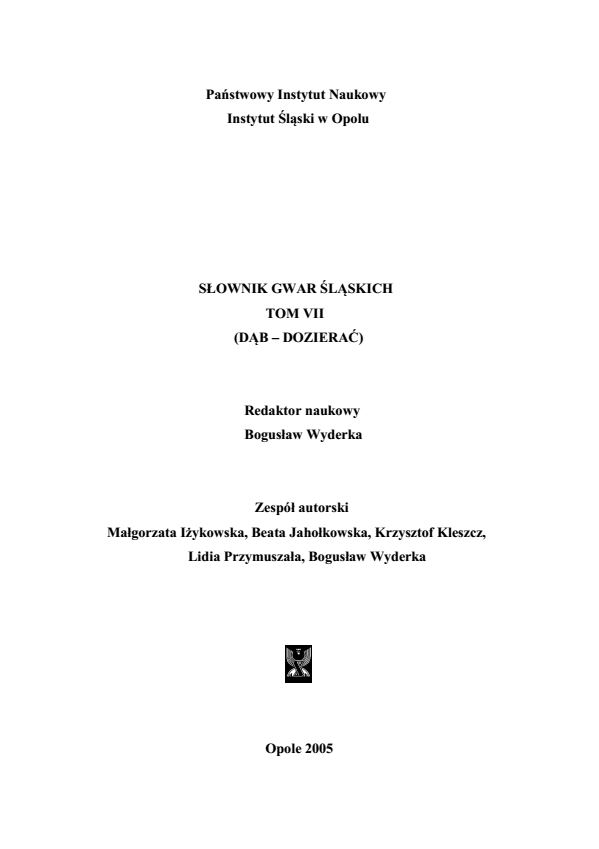
"Glossary of Silesian Dialects" is the result of many years of scientific work of several generations of linguists from the Silesian Institute in Opole, Poland.
More...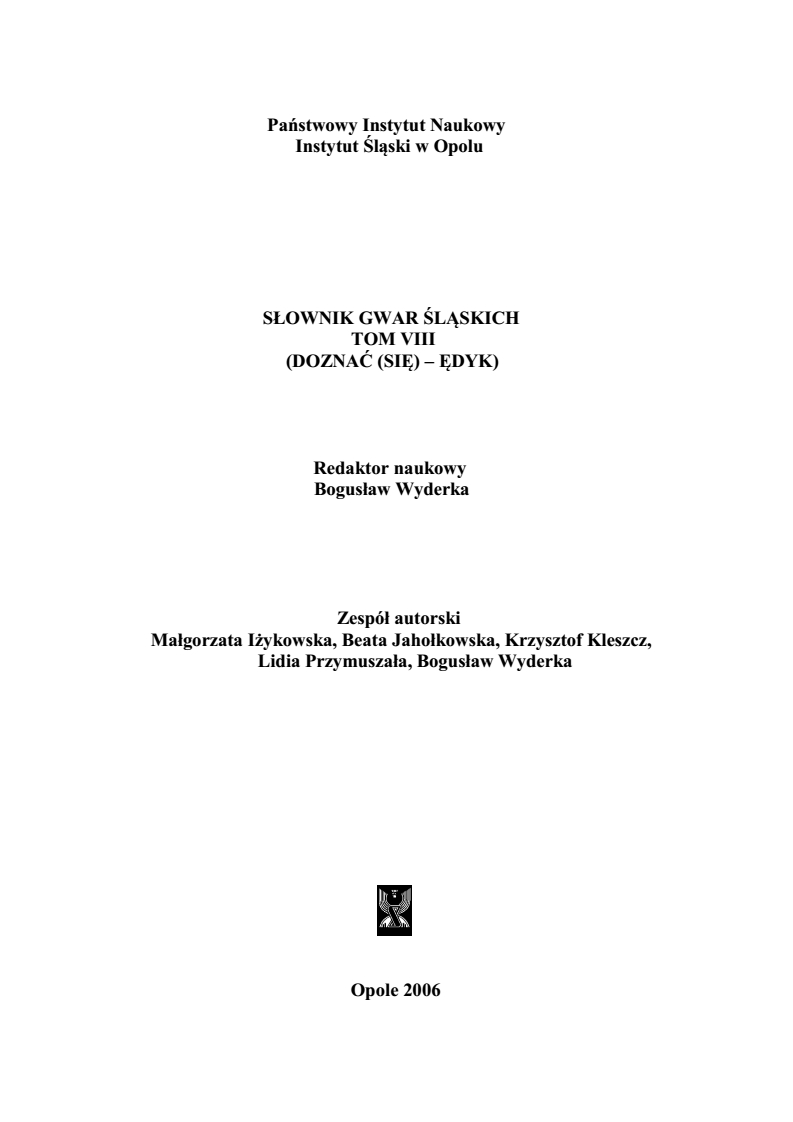
"Glossary of Silesian Dialects" is the result of many years of scientific work of several generations of linguists from the Silesian Institute in Opole, Poland.
More...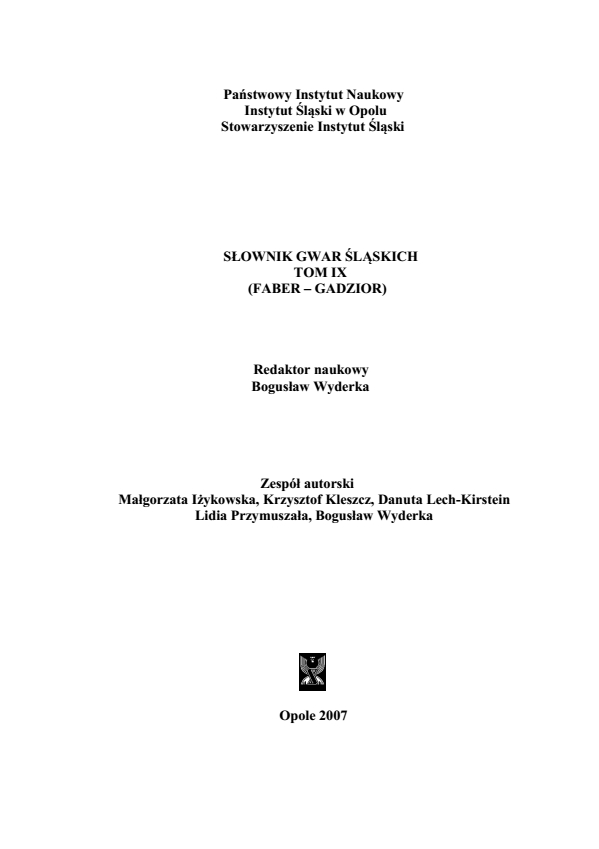
"Glossary of Silesian Dialects" is the result of many years of scientific work of several generations of linguists from the Silesian Institute in Opole, Poland.
More...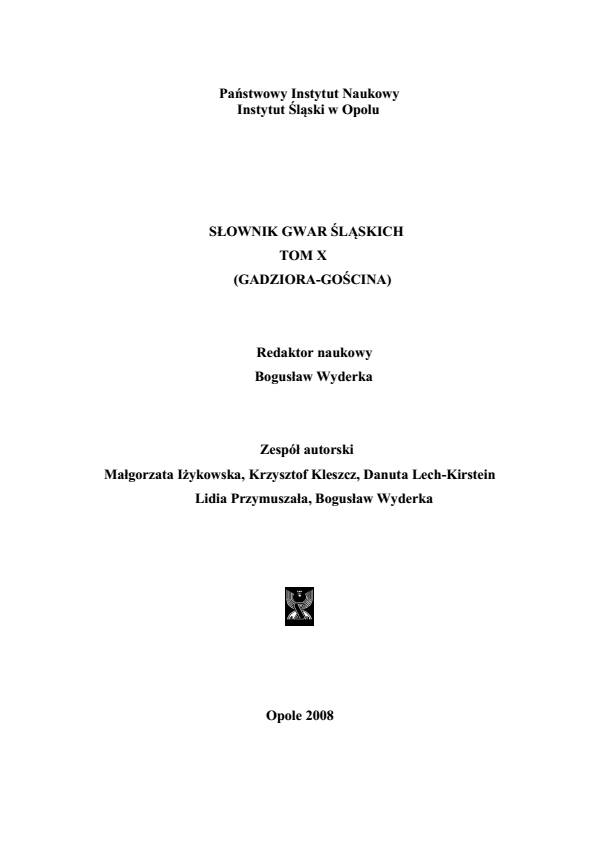
"Glossary of Silesian Dialects" is the result of many years of scientific work of several generations of linguists from the Silesian Institute in Opole, Poland.
More...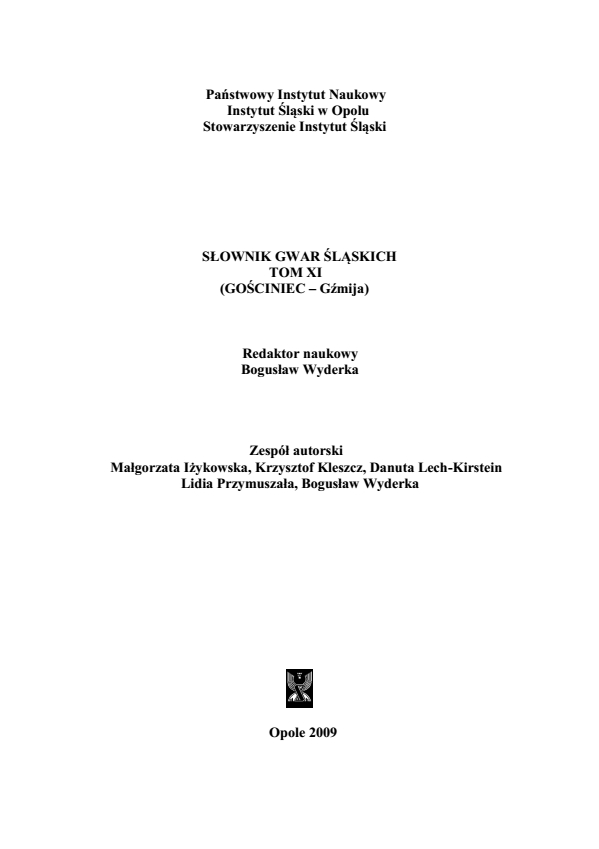
"Glossary of Silesian Dialects" is the result of many years of scientific work of several generations of linguists from the Silesian Institute in Opole, Poland.
More...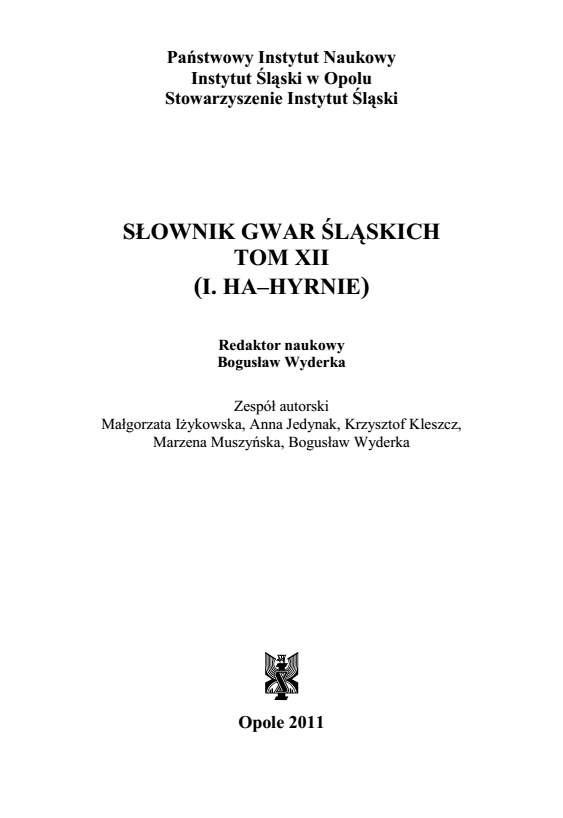
"Glossary of Silesian Dialects" is the result of many years of scientific work of several generations of linguists from the Silesian Institute in Opole, Poland.
More...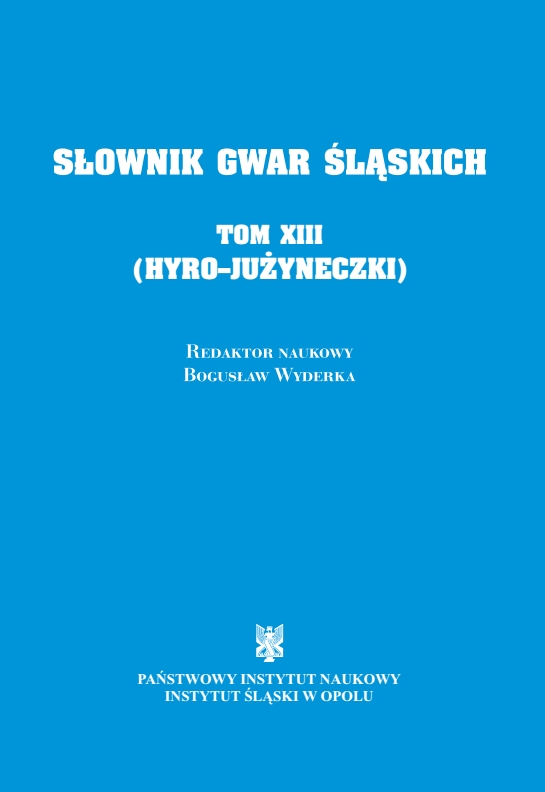
"Glossary of Silesian Dialects" is the result of many years of scientific work of several generations of linguists from the Silesian Institute in Opole, Poland.
More...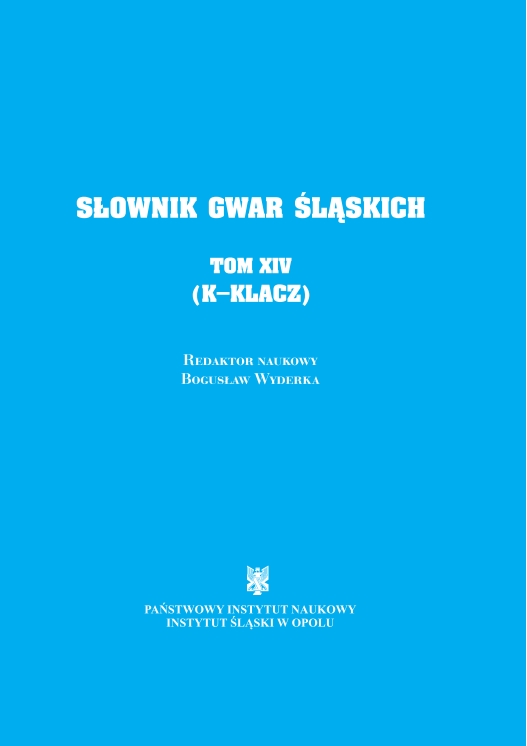
"Glossary of Silesian Dialects" is the result of many years of scientific work of several generations of linguists from the Silesian Institute in Opole, Poland.
More...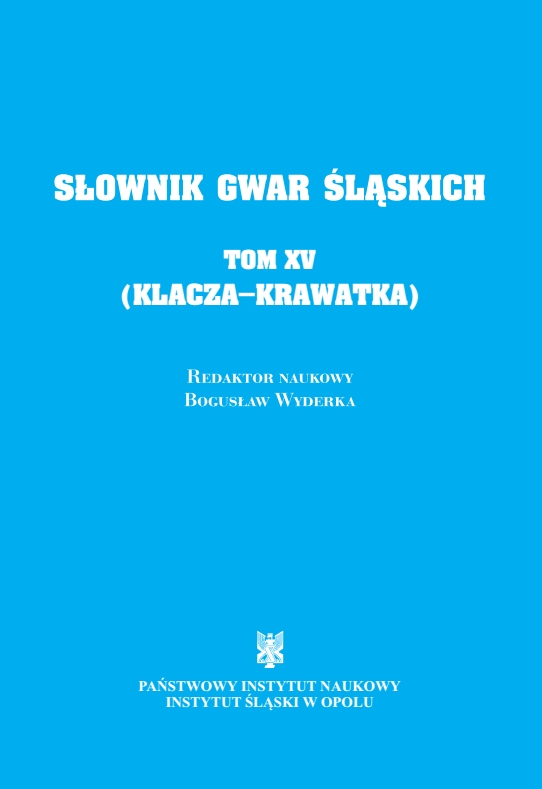
"Glossary of Silesian Dialects" is the result of many years of scientific work of several generations of linguists from the Silesian Institute in Opole, Poland.
More...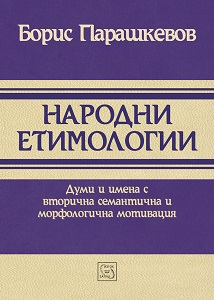
Etymology is the most popular area of linguistics, particularly its lexicology. This is the study of the history of words, their origins, and how their forms and meanings have changed over time. By extension, the term "the etymology (of the word)" means the origin of the particular word. In a simpler sense today, we associate the term Etymology with clarifying the question of where a foreign or unknown word comes from. "Folk Etymology" represents the naive attempt to make sense of a vague word. It is a change in a word or phrase resulting from the replacement of an unfamiliar form by a more common one. This is sometimes called pseudo-etymology, popular etymology, or analogical reformation. The form or the meaning of an archaic, foreign, or otherwise unfamiliar word is reanalyzed so as to resemble more familiar words or morphemes. "Folk Etymology" (subtitled "Words and Names with Secondary Semantic and Morphological Motivation") traces the true origin of copious words, indicates which use is legitimate and what kind of deviation is involved from the original form, as well as its acceptability and its avoidance from loanwords when used in their natural environment beyond the Bulgarian language. The book dedicates itself to the 120th anniversary of the publication of the monograph "Contribution to the Bulgarian Vernacular Etymology" by Prof. Ivan Shishmanov (1862-1928).
More...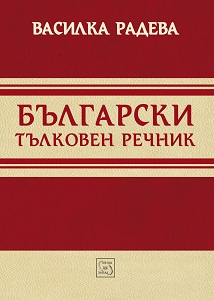
The present “Bulgarian Encyclopedic Dictionary” is addressed to all those who are interested in the word enriching of the modern Bulgarian language. It covers mainly the commonly used vocabulary, whose correct use in speech is an important prerequisite for building and enhancing the language culture. The interpretation of the words is short and sparing with the aim of accurately presenting their lexical meaning, making the use of a one-word lexicography booklet easy and convenient. The inclusion of the foreign language vocabulary that has entered the Bulgarian language in the last decades gives an opportunity to realize its place and role in enriching the Bulgarian vocabulary, considering its use in the speech practice. There are also new words and meanings that reveal the dynamics of the Bulgarian lexical system without reflecting individual and professional uses. The Bulgarian vocabulary is intended for all the Bulgarian language spokesmen who are not indifferent to the correct understanding and the correct use of the words.
More...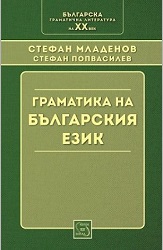
With the series "Bulgarian Grammar Literature of the 20th Century", East-West publishing house aims to familiarize the Bulgarian reader with the outstanding contribution of prominent Bulgarian linguists in the development and formation of our literary linguistic norms in the 20th century, as well as in the development of Bulgarian linguistic science in general. All the editions included in here have been out of print long ago or difficult to find bibliographically. The first two grammars in the series will be phototype editions. This will enable Bulgarian specialists-linguists to look into the history of the development of the Bulgarian grammar literature from the beginning of the 20th century, which predetermined the further development of Bulgarian and general linguistics, showed its valuable contribution to our national cultural treasure.
More...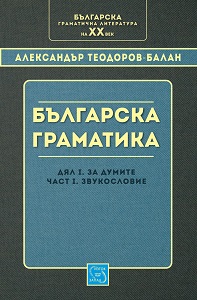
Second phototype edition of the series "Bulgarian Grammar Literature of the XX Century".In the research of academician Alexander Teodorov-Balan grammatical works occupy a special place not only with regard to the preceding grammars, but also because of their influence on the development of linguistic science in our country. From the position of modern linguistic theories, it is now possible to rethink or challenge the opinions, views and theoretical expressions posed more than half a century ago. Undoubtedly, however, Alexander Teodorov-Balan contribution remains a place in the history of Bulgarian science and education. - Prof. Ph.D. Vasilka Radeva- Prof. Ph.D. Vasilka Radeva
More...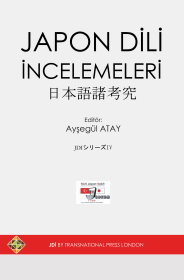
Japon Dili İncelemeleri (JDİ IV) Serisi olan 4. kitabımızı basmış bulunmaktayız. Erciyes Üniversitesi ev sahipliğinde 21-22 Haziran 2018 tarihleri arasında düzenlenen III. Japon Dili ve Eğitimi Uluslararası Sempozyumu’nda (JADEUS 2018) sunulan bildiriler, hakem heyetinin değerlendirme ve görüşleri doğrultusunda yazarları tarafından düzeltilerek yayına uygun hale getirilmiştir. Kitabımızın 4. sayısında Türkçe ve Japonca dillerinde yazılmış 16 bölüm yer almaktadır. Bölümler, Japonca eğitimini edebi ve kültürel açıdan ele alan araştırmalar, Türkçe-Japonca karşılaştırmalı dil araştırmaları ve uygulamalı araştırma alanlarındandır. Bu bölümler Japon dili, kültürü ve eğitimi konularına ilgi duyan, öğrenmek - öğretmek isteyenlere ve akademik düzeyde araştırma yapanlara kaynak olması amacıyla kitap haline getirilmiştir.
More...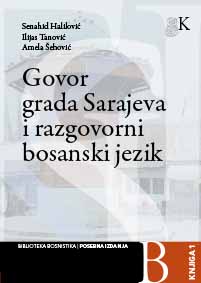
There has been no systematic research into the dialect of Bosnian spoken in the city of Sarajevo. The aim of this book is to motivate different linguistic research in the capital of Bosnia and Herzegovina. First of all, a detailed description is required for the traditional speech of the city. Up till now there have only been sporadic efforts to do this. Onomastic and lexical material in Sarajevo is also yet to be explored. Finally, any sociolinguistic research will provide precious data on the multi-layered division of urban speech.The first part of this book presents the speech of Sarajevo within the southern sub-dialect of the eastern Bosnian (ijekavski-šćakavski) dialect,followed by data on the speech of Sarajevo from almost all the sources available for the past three centuries. The material includes the 18th century Annals by Bašeskija, Šurmin’s work from the late 19th century, and various questionnaires from the National Museum. The speech of Sarajevo was partly covered by various writings on dialectology, particularly papers by D. Brozović, and the now totally vanished ekavski-ijekavski dialect spoken in Bjelave, an old quarter in Sarajevo, is presented through data obtained by a survey conducted in the 1980s. This completes all the principal data about speech in Sarajevo until the end of the 20th century.The second part of the book presents specific lexical forms characteristic of the material and spiritual culture of Sarajevo. Some real-life categories as markings of material and spiritual culture maintain dual forms.Semantic analysis of micro-toponyms across Sarajevo is extremely complex, due to the city’s eventful history, different influences, major changes,conflicts and irreconcilable contradictions. This part contains a systemic presentation and a linguistic-cultural commentary on lexical forms and phraseology.The third part is an attempt to shed more light on the under-researched lexical wealth of the conversational style of the Bosnian language.For that purpose, a considerable lexical corpus was amassed using surveys and interviews, mainly in Sarajevo, and the lexemes of Bosnian conversational style were then divided into neutral and marked ones. The aim was to show their principal features in terms of semantics, structure, and function, but also to show that the lexical wealth of the conversational style corresponds functionally to its needs – which is why none of its segments may be prescribed. That is why this section is followed by an analysis ofthe traditionally ignored taboo-words and jargons. A dictionary of lexemes and phrases completes this book, particularly because all the meanings of lexemes and phrasemes were left unchanged from the time when they were collected, some ten years ago. Moreover, the usage labels were not changed despite the slight changes that have happened in this area, particularly in relation to neologisms that have since lost that status. Namely, the intention was to motivate all future researchers into the Bosnian language to become familiar with the meanings of the lexemes at the time they were collected, allowing people to compare them with present lexemes and thus identify any changes in their meaning or use. At the same time, this allows for scientifically founded conclusions to be drawn on the changes in the lexical unit, specific to the conversational practice of any language, including Bosnian. Finally, our research shows the wealth of the lexical fund of colloquial Bosnian, but also indicates the need for more comprehensive and versatile research – and the results of this work may serve as an important incentive.
More...